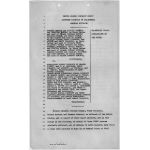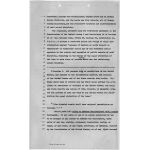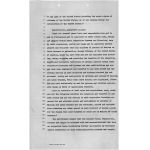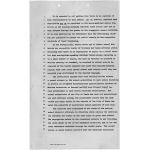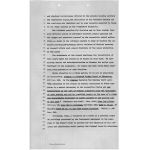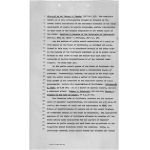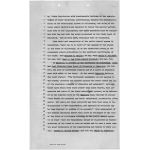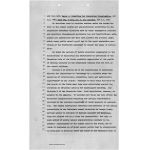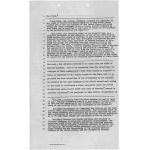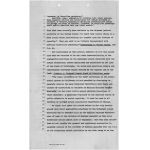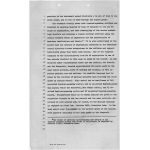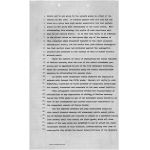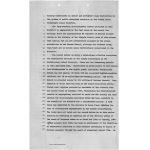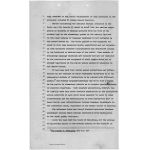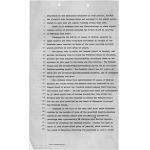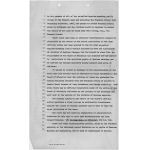Conclusions of the Court in Mendez v. Westminster
2/18/1946
Add to Favorites:
Add all page(s) of this document to activity:
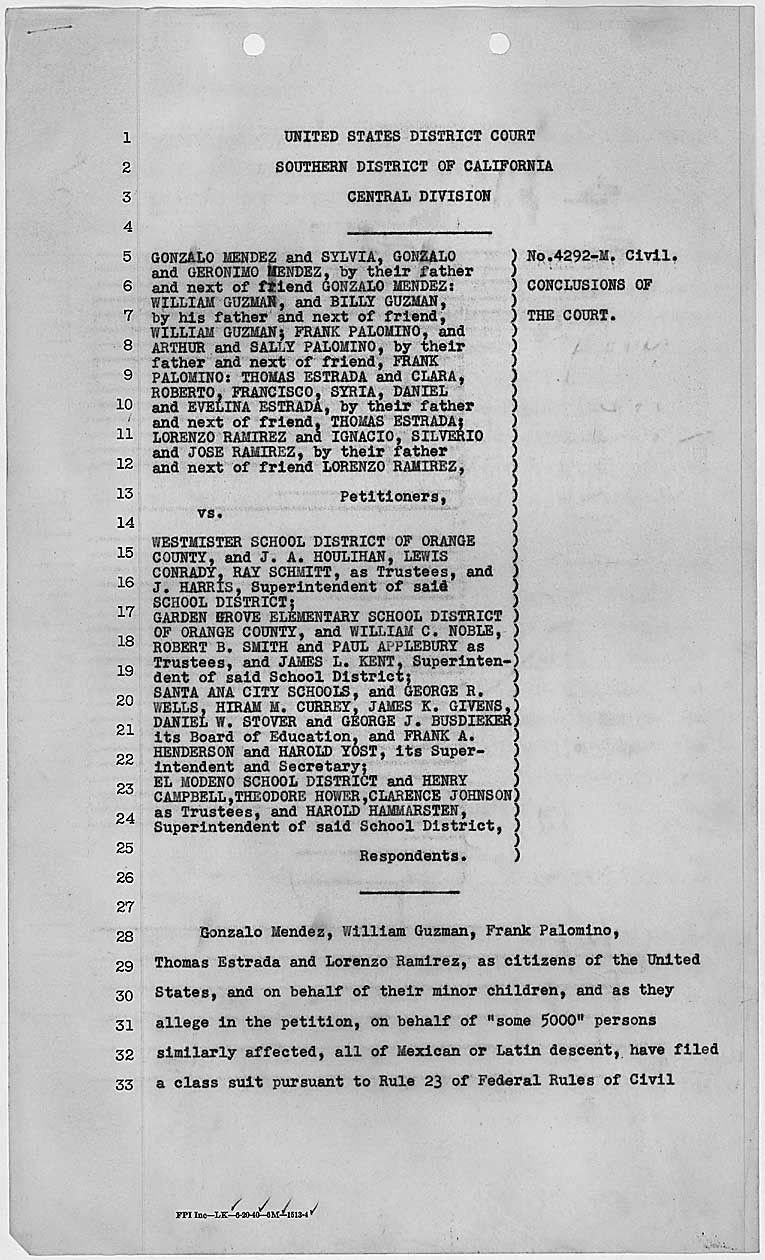
Add only page 1 to activity:
Add only page 2 to activity:
Add only page 3 to activity:
Add only page 4 to activity:
Add only page 5 to activity:
Add only page 6 to activity:
Add only page 7 to activity:
Add only page 8 to activity:
Add only page 9 to activity:
Add only page 10 to activity:
Add only page 11 to activity:
Add only page 12 to activity:
Add only page 13 to activity:
Add only page 14 to activity:
Add only page 15 to activity:
Add only page 16 to activity:
Add only page 17 to activity:
This document sets forth the finding of Judge Paul J. McCormick, which was in favor of the petitioners (the parents), in Mendez v. Westminster School District, a landmark case about integrating Mexican and Mexican-American students into the schools in Orange County, California.
In the Fall of 1944, Gonzalo and Felicitas Mendez tried to enroll their children in the Main Street School in Orange County, which Gonzalo had attended as a child. However, the school district had redrawn boundary lines that excluded Mexican neighborhoods. The Mendez children were assigned to Hoover Elementary School, which was established for Mexican children.
Other Orange County Latino parents faced similar situations with their children. With the help of the United Latin American Citizens (LUCAC), they joined with the Mendez family and sued four local school districts – Westminster, Garden Grove, and El Modeno School Districts and the City of Santa Ana – for segregating their children and 5,000 others. The petition from the parents stated that the schools were violating students' civil rights by segregating students of "Mexican and Latin" ancestry in separate schools.
U.S. District Court Judge Paul J. McCormick concurred with the petitioners, issuing an injunction against the school districts' segregation policies. He stated that there was no justification in the laws of California to segregate Mexican children and that doing so was a "clear denial of the equal protection clause of the 14th Amendment."
The school districts filed an appeal, partly on the basis of a states' rights strategy. The U.S. Ninth Circuit Court upheld the District Court ruling in 1947, and the Orange County school districts dropped the case. The case resulted in the California legislature passing the Anderson bill, a measure that repealed all California school codes mandating segregation, signed by Governor Earl Warren.
Mendez v. Westminster School District landed an important blow to school segregation in California. And it underscored that the struggle for civil rights in America crossed regional, racial, and ethnic lines.
In the Fall of 1944, Gonzalo and Felicitas Mendez tried to enroll their children in the Main Street School in Orange County, which Gonzalo had attended as a child. However, the school district had redrawn boundary lines that excluded Mexican neighborhoods. The Mendez children were assigned to Hoover Elementary School, which was established for Mexican children.
Other Orange County Latino parents faced similar situations with their children. With the help of the United Latin American Citizens (LUCAC), they joined with the Mendez family and sued four local school districts – Westminster, Garden Grove, and El Modeno School Districts and the City of Santa Ana – for segregating their children and 5,000 others. The petition from the parents stated that the schools were violating students' civil rights by segregating students of "Mexican and Latin" ancestry in separate schools.
U.S. District Court Judge Paul J. McCormick concurred with the petitioners, issuing an injunction against the school districts' segregation policies. He stated that there was no justification in the laws of California to segregate Mexican children and that doing so was a "clear denial of the equal protection clause of the 14th Amendment."
The school districts filed an appeal, partly on the basis of a states' rights strategy. The U.S. Ninth Circuit Court upheld the District Court ruling in 1947, and the Orange County school districts dropped the case. The case resulted in the California legislature passing the Anderson bill, a measure that repealed all California school codes mandating segregation, signed by Governor Earl Warren.
Mendez v. Westminster School District landed an important blow to school segregation in California. And it underscored that the struggle for civil rights in America crossed regional, racial, and ethnic lines.
This primary source comes from the Records of District Courts of the United States.
National Archives Identifier: 294945
Full Citation: Conclusions of the Court; 2/18/1946; Civil Case File 4292; Gonzalo Mendez et al v. Westminster School District of Orange County et al, 3/2/1945 - 7/18/1947; Civil Case Files, 1938 - 1995; Records of District Courts of the United States, Record Group 21; National Archives at Riverside, Perris, CA. [Online Version, https://www.docsteach.org/documents/document/conclusions-court-mendez, April 29, 2024]Rights: Public Domain, Free of Known Copyright Restrictions. Learn more on our privacy and legal page.



